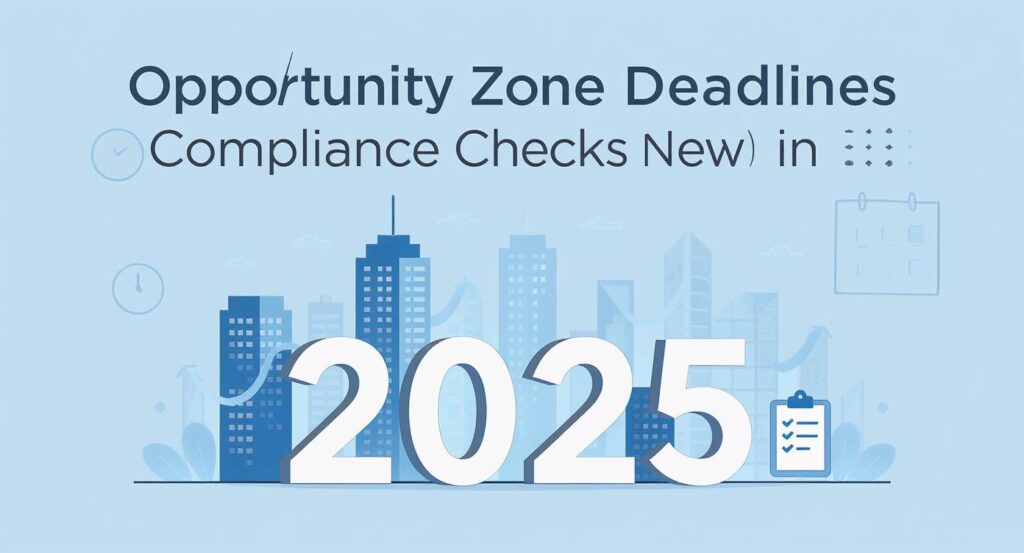
Page 1: What Are Opportunity Zones?
Opportunity zones are special areas chosen by the government to help improve poor neighborhoods. People and companies who invest money in these areas can get tax breaks. This means they can save money on their taxes.
The idea behind opportunity zones is simple: If investors put money into these places, it will help them grow. New buildings, businesses, and jobs can come to the area. But there are rules. To keep getting the tax breaks, investors must follow certain deadlines and checks. These are called opportunity zone deadlines and compliance checks.
In 2025, these rules are more important than ever. That’s because many investors started their projects a few years ago. Now, they must show they are following the rules correctly.
Page 2: Why Deadlines and Checks Matter
The IRS (Internal Revenue Service) watches over opportunity zone projects. They want to make sure people are using the money the right way. That’s where opportunity zone deadlines and compliance checks in 2025 come in.
There are three big deadlines in 2025:
- The 180-Day Rule: After making money from something like selling stocks, an investor has 180 days to put that money into a Qualified Opportunity Fund (QOF).
- The 30-Month Substantial Improvement Period: If you buy a building, you have 30 months to make big changes to it.
- The 10-Year Rule: If you keep your investment in a QOF for 10 years, you may not have to pay any taxes on the money you make when you sell it. For early investors, 2025 may be the year this rule starts to matter.
Compliance checks are reviews to see if investors followed all the rules. In 2025, these checks will look at how money was spent, if timelines were followed, and if jobs or buildings were added in the zone.
Failing one of these checks can mean losing the tax breaks. That’s why following the opportunity zone deadlines and compliance checks in 2025 is so important.
Page 3: How To Stay On Track in 2025
To avoid problems, investors must be ready. Here are a few smart steps:
- Keep Good Records: Always write down when you invest, how much, and where it goes. Save receipts and reports.
- Work With Experts: Accountants and lawyers can help you understand the rules. They know the law and can help you follow it.
- Use Software Tools: Some companies offer tracking tools that show if you’re meeting deadlines or need to fix something.
- Watch for Updates: The IRS might update the rules. Stay informed by checking their website or talking to your advisor.
The IRS has already said they will do more reviews this year. That means opportunity zone deadlines and compliance checks in 2025 will be stricter than before.
This year is a turning point. Investors must prove they are helping the community and not just saving money. That’s the whole reason for opportunity zones: to build up neighborhoods that need help. If the money doesn’t help people or places, then the tax benefits may go away.
Conclusion
Opportunity zones are a great way to help others and save money. But in 2025, the rules are tighter. Investors must follow the opportunity zone deadlines and compliance checks in 2025 or they might lose their benefits. Keep records, ask for help, and stay focused. Doing the right thing means everyone wins—the investors and the communities they serve.


